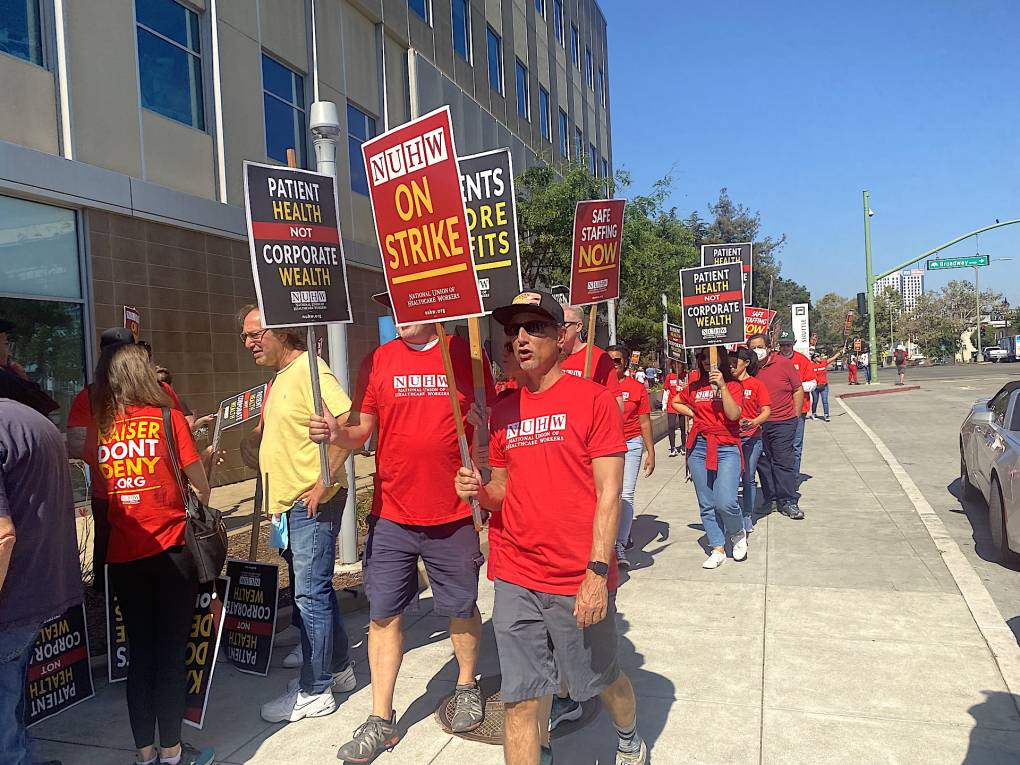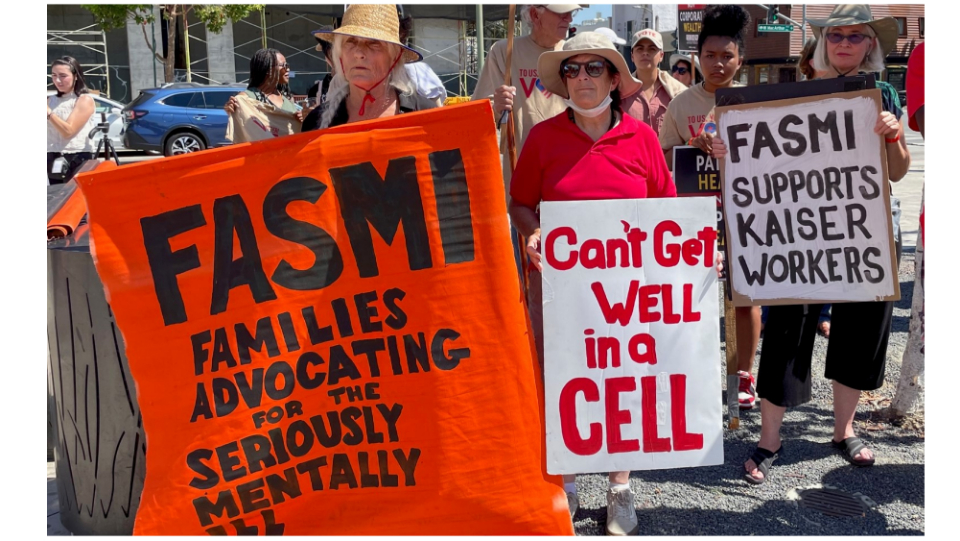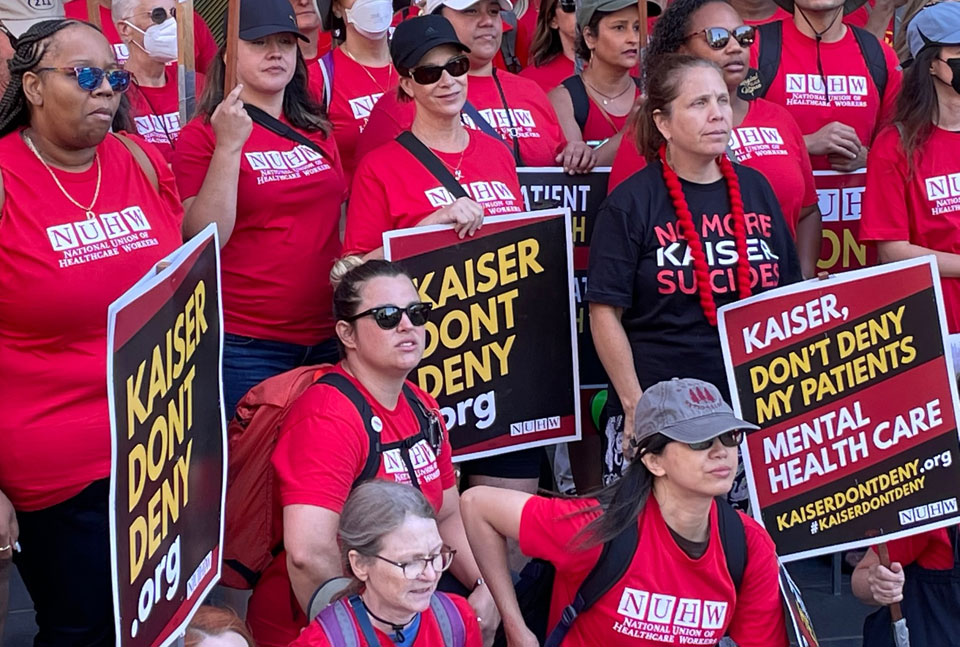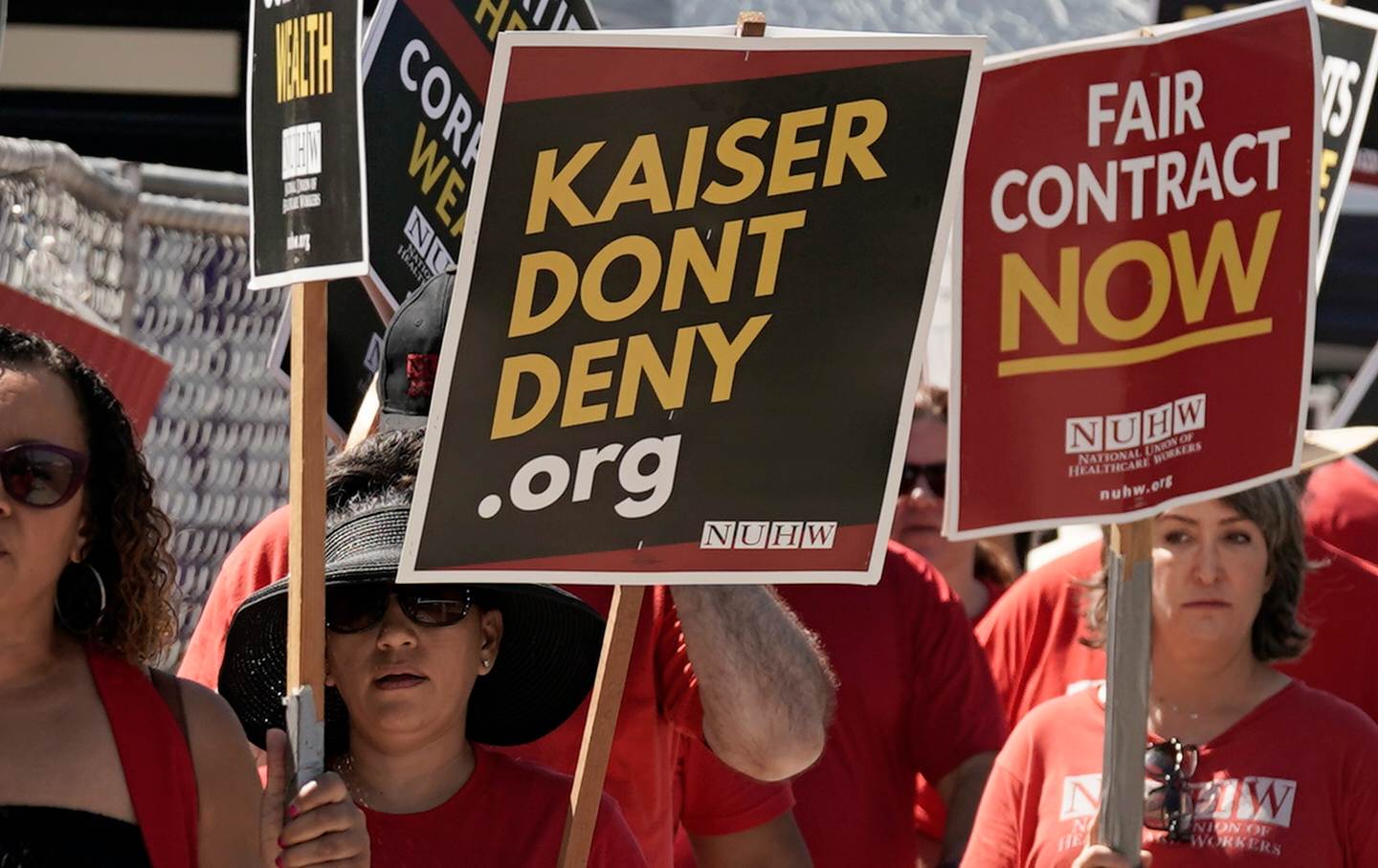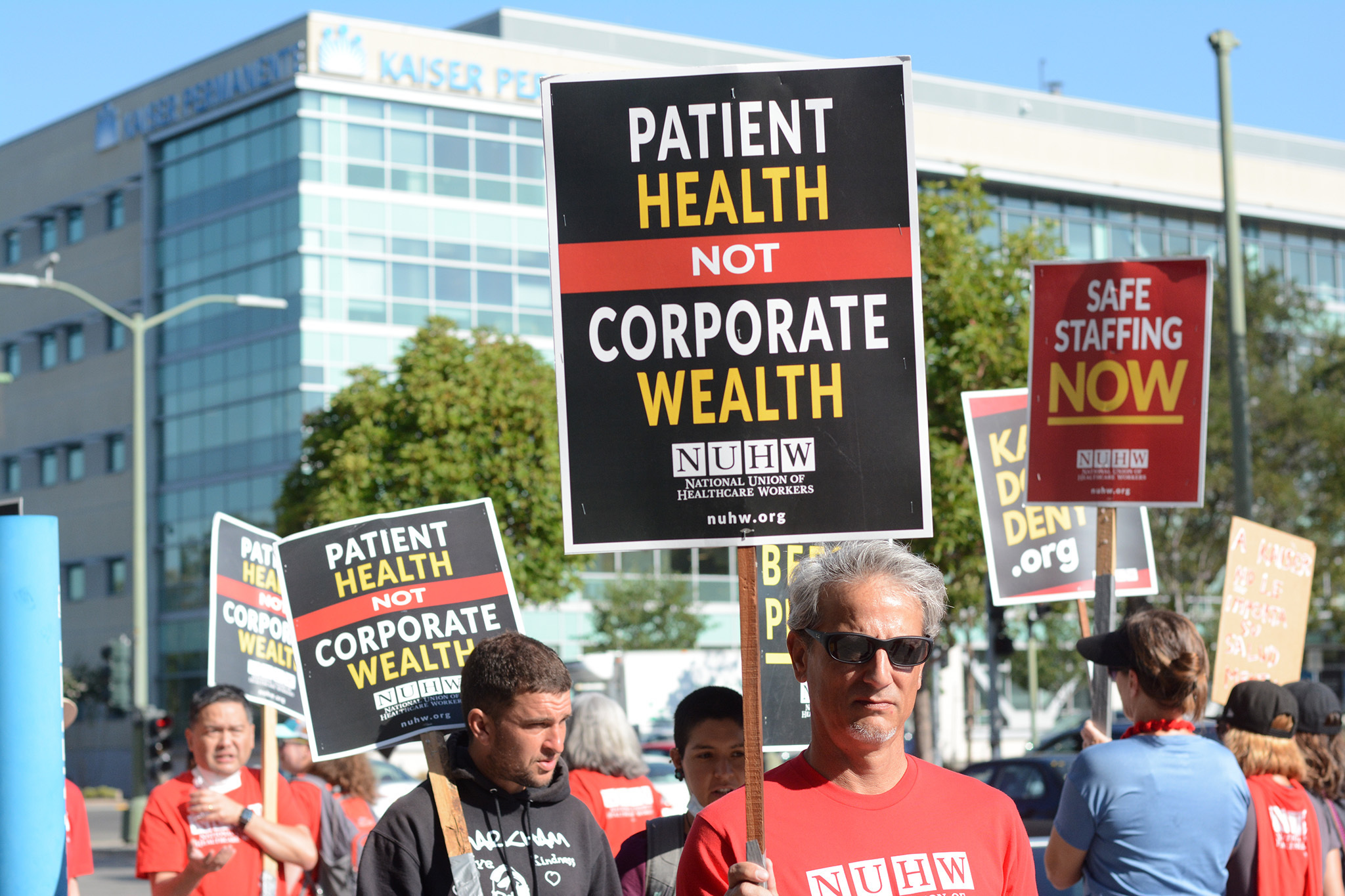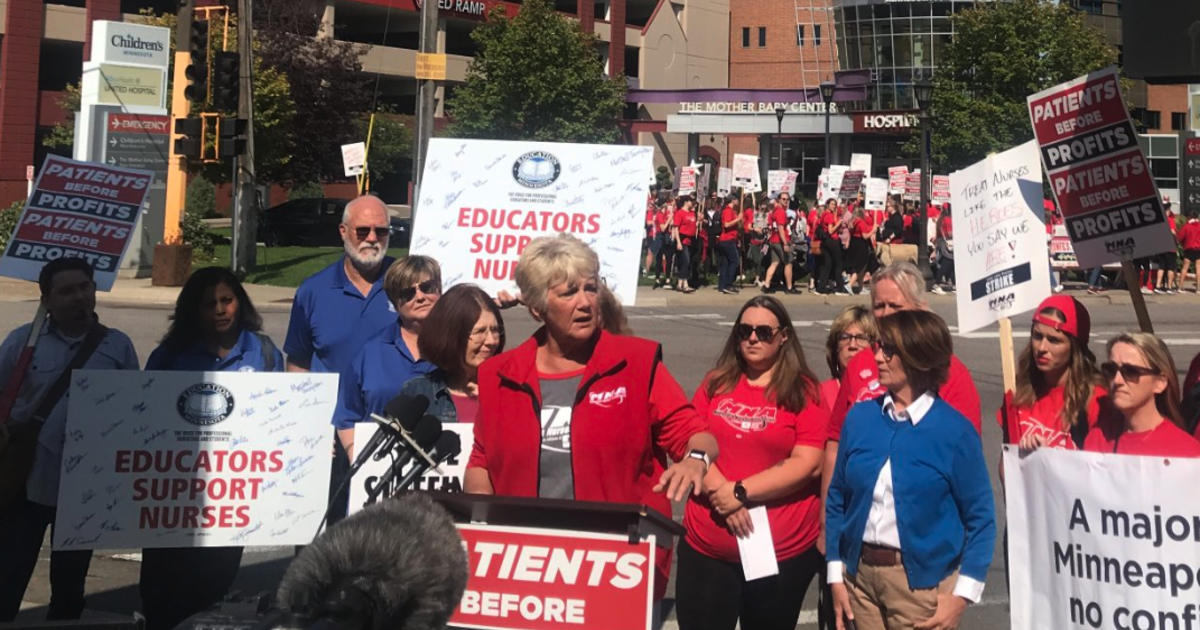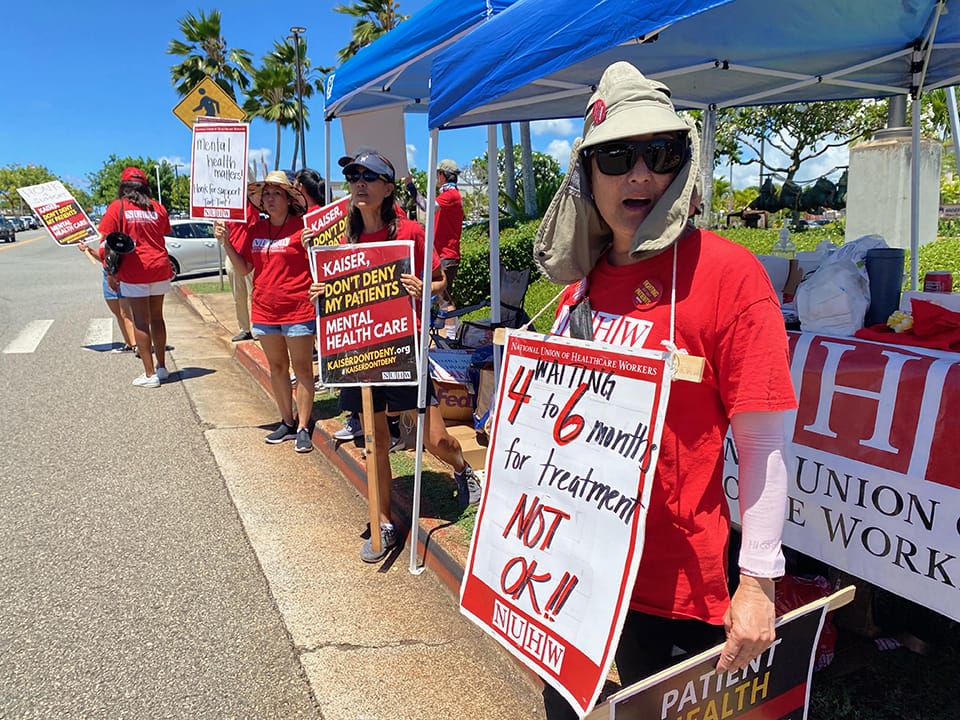"
OAKLAND – Mental health therapists and nurses at Kaiser Permanente in their fifth week of striking for improved working conditions have called on state regulators to prevent the health care provider from using temporary replacement workers which they claim could postpone patient care during the strike.
The National Union of Healthcare Workers filed a complaint with the state's Department of Managed Health Care on behalf of the striking employees on Friday, arguing that Kaiser planned to temporarily hire unqualified licensed vocational nurses during the strike.
Current state law requires health care providers to offer a follow-up mental health therapy session within 10 business days of an initial session unless a licensed therapist determines that a longer wait time between sessions would not harm the patient.
Kaiser's temporary workers, according to the complaint, would be tasked with determining whether patients require a follow-up therapy session within 10 days of their initial session. The NUHW argued doing so would violate state law.
"It's time for the state to do its job and enforce the law so Kaiser Permanente patients aren't wrongfully denied the mental health care they need," NUHW President Sal Rosselli said in a statement.
More than 2,000 therapists, psychologists, social workers and addiction counselors have picketed Kaiser locations in the Bay Area since Aug. 15, when the NUHW said labor talks deteriorated.
According to the union, workers accepted a pay structure offer from Kaiser management, but the health care provider declined to accept proposals requiring increased staffing and reduced appointment wait times.
Kaiser Permanente called the strike "unnecessary" in a statement and suggested the NUHW is pushing workers to picket and "make mischaracterized or unfounded allegations."
Kaiser also argued that the nurses and clinicians that are working temporarily during the strike have done so on short notice and solely in an effort to ensure that patient care is not interrupted.
"Contrary to NUHW's allegations, the nurses are not providing clinical assessments or making appointments, and they are not making any judgments with respect to the care that has already been provided," Kaiser said of the temporary workers. "Only our licensed behavioral health clinical experts review the patient's care, assess what is needed for the patient, and work to provide the care to the patient."
Union and Kaiser officials are expected to resume bargaining talks on Wednesday.
Until then, workers are expected to strike at medical centers in San Francisco, Oakland, Santa Clara, Santa Rosa, Vallejo and Walnut Creek from 8 a.m. to 3 p.m. The strike will continue until the two sides reach a new bargaining agreement, according to the NUHW."

